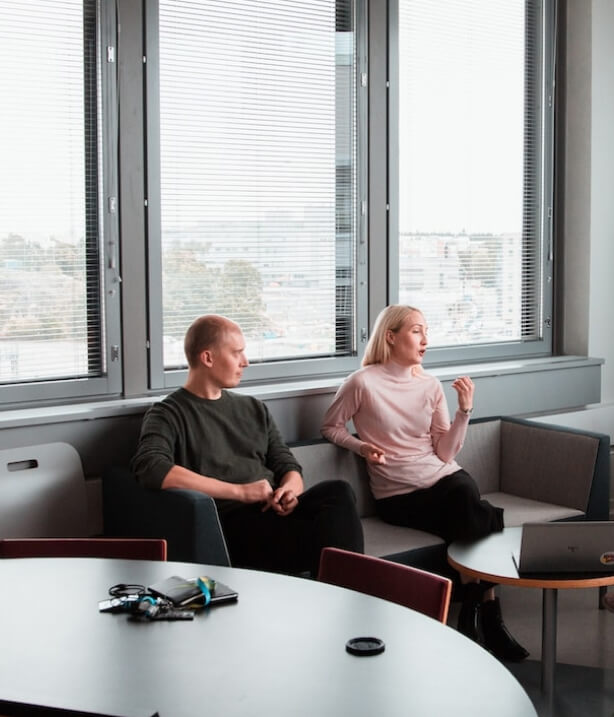Our Addiction Treatment Therapies & Modalities
Discover The Therapies & Modalities We Use To Help Patients Recover
Speak with an admissions specialist

Holistic Therapy Practices For Healing & Enduring Sobriety
At Ascendant, we treat the whole patient, not just the addiction. To that end, we offer several holistic healing therapeutic services that blend seamlessly with our medical and clinical treatments. These whole-patient treatments will help alleviate some of the mental and emotional symptoms associated with the physical effects of detox and withdrawal.
Uniquely situated on the Upper East Side, our NYC treatment facility is located on E 60th Street between Park Avenue and Lexington. We believe there is power in utilizing our local environment to design a unique and holistic healing experience for patients struggling with drug or alcohol addiction. Eighteen beds allow for a truly individualized experience in order to fully support the patient from the initial stages of detox through the entire continuum of care.

Clinical Modalities At Ascendant NY
Experiential Addiction Therapy
Experiential therapy is a form of hands-on, tangible therapeutic treatment that allows patients to express themselves through activities, the use of interactive tools, and even animals. Patients learn to address substance addictions and past traumas through physical engagement.
Our case managers organize regular outings and activities that include exploring local museums, rock climbing, surfing, inspiring art exhibits, nature parks, as well as other attractions that New York has to offer.
This experience creates an opportunity for patients participating in our treatment programs to gain a fresh perspective on life while learning more about themselves and seeing the world through a sober lens.

Experiential Therapeutic Arts
The arts are more than simply entertainment. They’re educational, experiential, and interactive. Art, and music are highly effective methods for extracting inner thoughts, fears, and emotions from the patient.
This helps them verbalize, visualize, process, and otherwise express their inner dialogue and address past trauma or addiction.

Adventure Therapy
Adventure therapy is based on the element of live participation. Our program focuses on nature’s offerings to bring about a transformative experience.
We participate in activities ranging from hiking and exploring the great outdoors, to boating or sailing, climbing, and obstacle courses. Every outdoor expedition is approached with a thoughtful balance of adventure and safety

Cognitive Behavioral Therapy (CBT)
Cognitive behavioral therapy helps patients identify negative or undesirable automatic responses. It explores the connection between the patient’s thoughts, feelings, and ensuing impulse-driven behaviors.
By frequently revisiting the negative memory, the patient can begin to uncover where self-destructive or regrettable behaviors and unhealthy patterns originate. They can learn to develop new habits and positive behaviors to replace negative ones.
Cognitive behavioral therapy is a well-respected modality in the mental health and addiction field. It has proven effective for drug and alcohol addiction, prescription medication misuse, and mental health conditions such as anxiety, schizophrenia, eating disorders, depression, and bipolar disorders.
Dialectical Behavioral Therapy (DBT)
Dialectical behavioral therapy is a modified form of cognitive behavioral therapy. Where CBT pushes for desirable changes in behavior, DBT focuses more on developing healthy coping skills to manage stress and emotions.
Initially developed to treat Borderline Personality Disorder, DBT is also effective with self-destructive behaviors such as drug and alcohol addiction or suicidal tendencies. DBT concentrates on developing mindfulness skills to help patients focus on what’s happening at the moment and learning to live in a state of positive awareness.
Distress tolerance is another principle of DBT that helps patients learn new techniques for handling a crisis. Patients are trained on distraction skills, how to improve the moment and ways to self-soothe.
DBT patients also learn more positive ways to enhance their interpersonal effectiveness by expressing their needs, utilizing positive communication and giving thoughtful responses. Emotional regulation training helps patients navigate powerful emotions without the disruptive negative effects.



Motivational Interviewing
A lack of motivation can be a significant barrier to overcoming drug and alcohol abuse or process addictions. Motivational Interviewing is a therapeutic technique similar to talk therapy that is intended to help change ambivalent behaviors.
This process enables patients to rediscover the motivation they need to make a positive change in their habits or behavior. Motivational counseling principles are intended to equip the patient to move beyond their internal narrative of indecision or ambivalence and take the more desirable, healthier action. This empowering process helps patients take a renewed ownership of their life and advance their recovery.

Family Therapy
Family therapy is a form of psychotherapy administered over a short-term period to families, sibling groups, and intimate partners. The format will vary from group to individual as sessions progress. The group format requires focused engagement from everyone involved in order to make measurable progress.
Family counseling helps family units solve internal problems and enhance communication practices in a healthy way. Families will see a licensed clinical therapist for a custom-designed treatment plan that is designed to fit each family unit while still making space for each individual member to be heard.
Family therapy is a good fit for couples or families struggling with financial hardship, unproductive communication, a lack of trust, marital issues, recurring conflicts, substance or process addictions, and infidelity.
It’s also helpful when undergoing significant life changes such as navigating mental health conditions, a recent loss, or a serious illness. Each of these challenges can come with a considerable number of smaller obstacles potentially making an already strained dynamic much worse.